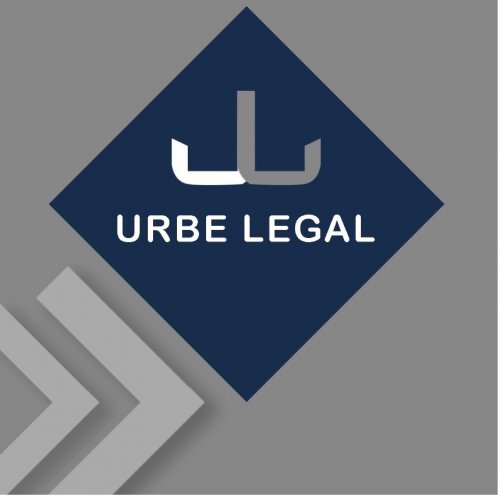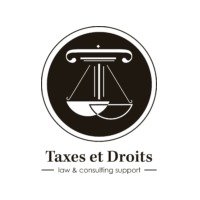Best Private Equity Lawyers in Guatemala
Share your needs with us, get contacted by law firms.
Free. Takes 2 min.
Or refine your search by selecting a city:
List of the best lawyers in Guatemala
About Private Equity Law in Guatemala
Private equity refers to investment in private companies that are not listed on public stock exchanges. In Guatemala, private equity plays a growing role in supporting business development and fostering innovation. Investors, venture capitalists, and entrepreneurs engage in private equity transactions involving buying, financing, and restructuring companies. This sector offers both opportunities and complexities due to Guatemala's evolving legal and economic landscape. Legal frameworks, compliance requirements, and due diligence standards are key aspects of navigating private equity in the country.
Why You May Need a Lawyer
Engaging in private equity investments can involve significant legal complexities. You may need a lawyer for various reasons, such as:
- Structuring investment deals and partnerships
- Negotiating terms and drafting agreements
- Ensuring compliance with local regulations and tax laws
- Performing legal due diligence on target companies
- Resolving disputes among investors or with third parties
- Handling exit strategies such as mergers, acquisitions, or public offerings
- Protecting intellectual property and other assets
- Mitigating risks related to anti-money laundering and anti-corruption laws
A legal advisor can help protect your interests, clarify obligations, and guide you through each stage of a private equity transaction.
Local Laws Overview
Guatemala has specific laws and regulations affecting private equity investments. The legal framework is influenced by the Commercial Code, Securities Market Law, and regulations set by government financial authorities. Some key aspects include:
- Corporate Structure - Most private equity transactions involve the creation or acquisition of Guatemalan companies, often structured as a “Sociedad Anónima” (Corporation) due to limited liability benefits.
- Foreign Investment - Guatemala generally welcomes foreign investment but requires compliance with registration processes and foreign exchange rules.
- Contracts and Agreements - All investment, shareholder, and partnership agreements must adhere to local contract law requirements to be enforceable.
- Taxation - Investments, dividends, and capital gains may face specific tax treatments. Tax planning is essential to optimize returns and ensure compliance.
- Regulatory Oversight - Financial authorities oversee securities, money laundering prevention, and antitrust concerns related to larger transactions.
- Due Diligence - Comprehensive legal and financial due diligence is critical before finalizing any investment to assess risks and potential liabilities.
- Exit Strategies - Selling or transferring ownership in Guatemalan companies must comply with share transfer rules, approval processes, and possibly public registration.
Frequently Asked Questions
What is private equity, and how does it work in Guatemala?
Private equity involves investing directly into private companies or buyouts of public companies to eventually sell them at a profit. In Guatemala, this process is typically structured through corporate entities, with funding from local or foreign investors who seek returns through business growth and eventual exit events.
Can foreign investors participate in private equity deals in Guatemala?
Yes, foreign investors are permitted to invest in Guatemalan companies. There are some registration and reporting requirements, but the investment climate is generally favorable to foreign participation.
What are the main legal risks associated with private equity investments in Guatemala?
Key risks include unclear title or ownership of assets, regulatory non-compliance, tax liabilities, contractual disputes, and exposure to anti-corruption or anti-money laundering violations. Legal due diligence helps identify and mitigate these risks.
How is a private equity fund typically structured in Guatemala?
Funds are often structured through local corporations or partnerships, with specific agreements detailing governance, distribution of profits, and management roles. Some international investors may also use offshore structures in combination with local entities.
What due diligence is necessary before making a private equity investment?
Legal due diligence includes reviewing corporate records, financial statements, contracts, licenses, litigation histories, and compliance with labor and environmental laws. This process helps investors understand any potential liabilities.
Are there restrictions on capital repatriation for foreign investors?
Guatemala generally allows foreign investors to repatriate capital and profits, but certain processes must be followed, and taxes or fees may apply.
What is the tax treatment of private equity earnings in Guatemala?
Private equity returns may be subject to corporate and capital gains taxes, as well as withholding taxes for foreign investors. Consulting a lawyer or tax advisor is recommended to clarify specific obligations and opportunities for tax efficiency.
Is there government approval required for private equity investments?
Government approval is not always necessary but may be required in regulated sectors such as finance, natural resources, or telecommunications. Investments that could impact public interest may also require additional review.
How can investors protect their rights in a Guatemalan private equity transaction?
Robust shareholder agreements, clear exit provisions, and legal oversight can help protect investors’ interests. Working with experienced legal counsel ensures enforceable documentation and proper dispute resolution mechanisms.
What happens if there is a dispute among private equity partners or with management?
Disputes are usually resolved through arbitration or local courts, as set out in the investment agreements. Having well-defined processes and legal representation can facilitate the resolution of conflicts efficiently.
Additional Resources
The following organizations and government bodies can provide useful information and support related to private equity in Guatemala:
- Superintendence of Banks of Guatemala (Superintendencia de Bancos) - For regulations regarding financial operations and anti-money laundering compliance.
- Guatemalan Securities Registry (Registro del Mercado de Valores y Mercancías) - For information on securities laws and registration.
- Guatemalan Chamber of Commerce (Cámara de Comercio de Guatemala) - For resources on doing business in Guatemala.
- Ministry of Economy (Ministerio de Economía) - For foreign investment information and regulatory guidance.
- Local law firms and business associations specializing in corporate and private equity law.
Next Steps
If you are considering a private equity transaction or investment in Guatemala, here are some recommended next steps:
- Consult with a legal professional specializing in private equity and corporate law in Guatemala.
- Gather all relevant business documentation and clearly define your investment objectives.
- Request a legal risk assessment and due diligence review of any potential target business or investment partner.
- Work with advisors to structure your investment to maximize benefits and reduce risks.
- Ensure all agreements and corporate governance structures comply with Guatemalan law.
- Stay informed about regulatory requirements and potential changes in laws affecting private equity.
Professional legal support is essential in navigating the private equity sector and protecting your interests. Taking these steps will help ensure a successful and compliant investment experience in Guatemala.
Lawzana helps you find the best lawyers and law firms in Guatemala through a curated and pre-screened list of qualified legal professionals. Our platform offers rankings and detailed profiles of attorneys and law firms, allowing you to compare based on practice areas, including Private Equity, experience, and client feedback.
Each profile includes a description of the firm's areas of practice, client reviews, team members and partners, year of establishment, spoken languages, office locations, contact information, social media presence, and any published articles or resources. Most firms on our platform speak English and are experienced in both local and international legal matters.
Get a quote from top-rated law firms in Guatemala — quickly, securely, and without unnecessary hassle.
Disclaimer:
The information provided on this page is for general informational purposes only and does not constitute legal advice. While we strive to ensure the accuracy and relevance of the content, legal information may change over time, and interpretations of the law can vary. You should always consult with a qualified legal professional for advice specific to your situation.
We disclaim all liability for actions taken or not taken based on the content of this page. If you believe any information is incorrect or outdated, please contact us, and we will review and update it where appropriate.
Browse private equity law firms by city in Guatemala
Refine your search by selecting a city.

















